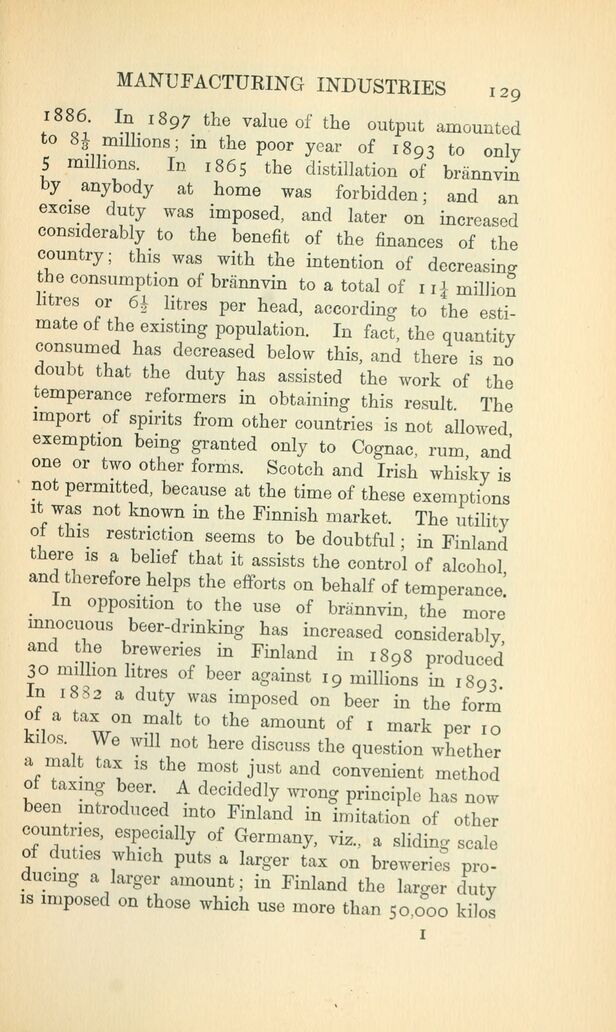
Full resolution (JPEG) - On this page / på denna sida - VI. Mining and Manufacturing Industries

<< prev. page << föreg. sida << >> nästa sida >> next page >>
Below is the raw OCR text
from the above scanned image.
Do you see an error? Proofread the page now!
Här nedan syns maskintolkade texten från faksimilbilden ovan.
Ser du något fel? Korrekturläs sidan nu!
This page has been proofread at least once.
(diff)
(history)
Denna sida har korrekturlästs minst en gång.
(skillnad)
(historik)
1886. In 1897 the value of the output amounted
to 8⅓ millions; in the poor year of 1893 to only
5 millions. In 1865 the distillation of brännvin
by anybody at home was forbidden; and an
excise duty was imposed, and later on increased
considerably to the benefit of the finances of the
country; this was with the intention of decreasing
the consumption of brännvin to a total of 11¼ million
litres or 6½ litres per head, according to the
estimate of the existing population. In fact, the quantity
consumed has decreased below this, and there is no
doubt that the duty has assisted the work of the
temperance reformers in obtaining this result. The
import of spirits from other countries is not allowed,
exemption being granted only to Cognac, rum, and
one or two other forms. Scotch and Irish whisky is
not permitted, because at the time of these exemptions
it was not known in the Finnish market. The utility
of this restriction seems to be doubtful; in Finland
there is a belief that it assists the control of alcohol,
and therefore helps the efforts on behalf of temperance.
In opposition to the use of brännvin, the more
innocuous beer-drinking has increased considerably,
and the breweries in Finland in 1898 produced
30 million litres of beer against 19 millions in 1893.
In 1882 a duty was imposed on beer in the form
of a tax on malt to the amount of 1 mark per 10
kilos. We will not here discuss the question whether
a malt tax is the most just and convenient method
of taxing beer. A decidedly wrong principle has now
been introduced into Finland in imitation of other
countries, especially of Germany, viz., a sliding scale
of duties which puts a larger tax on breweries
producing a larger amount; in Finland the larger duty
is imposed on those which use more than 50,000 kilos
<< prev. page << föreg. sida << >> nästa sida >> next page >>